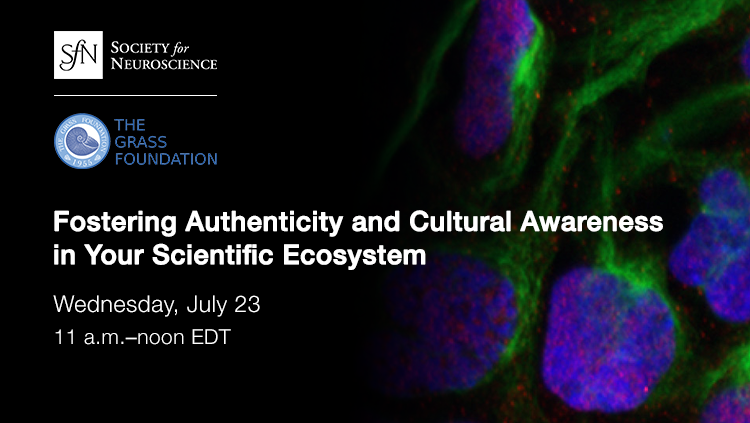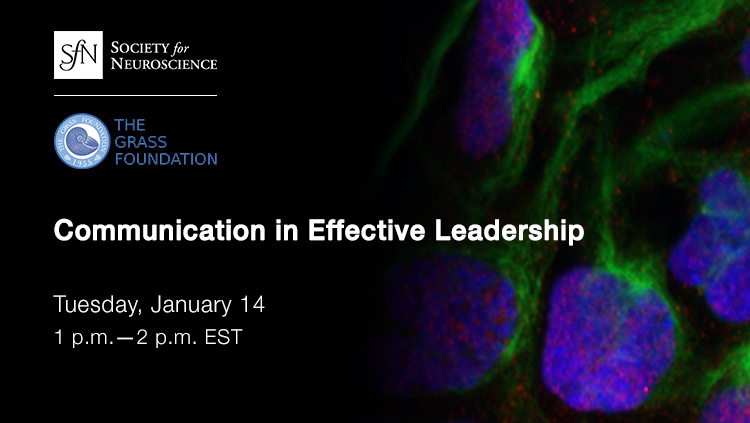
Access to the full article is available to SfN members.
Neuronline is a benefit of SfN membership. Renew your membership now to make sure you don’t lose access.
Who can attend this webinar? This webinar will be complimentary to SfN members and Grass fellows. Join or renew for access. This webinar is $15 for nonmembers.
Will this webinar be available on demand? Yes, this webinar will be available on demand one week from the live broadcast.
Will a certificate of attendance be offered for this event? No, SfN does not provide certificates of attendance for webinars.
How do I access the conference on the live day? After registering, you will receive a confirmation email with the event link and the option to download calendar reminders.
What are the technology requirements for attending? This webinar will be hosted on Zoom Webinar. Instructions for joining and participating in a webinar can be found here.
Can I ask the presenters questions? Yes! You can submit any questions before the webinar through the registration form. During the webinar, you can submit questions through the Q&A box.
I have other questions not answered here. Email digitallearning@sfn.org with any other questions.
Review SfN’s Code of Conduct, rules for virtual events in the Digital Learning Community Guidelines, and communications policies regarding dissemination of unpublished scientific data, listed below. SfN asks that conference attendees respect the sensitivity of information and data being presented that are not yet available to the public by following these guidelines:
- Do not capture or publicly share details of any unpublished data presented.
- If you are unsure whether data is unpublished, check with the presenter.
- Respect presenters' wishes if they indicate that the information presented is not to be shared.
Webinar Refund Policy
What is the cancellation/refund policy for webinars?
- If SfN changes fundamental details of the webinar (date, time, or speakers), nonmember registrants may request a registration refund.
- To request a refund, please email digitallearning@sfn.org at least 48 hours before the event. Otherwise, refunds are not provided. All webinars are complimentary to SfN members.
- SfN webinars can be watched on-demand if someone is unable to attend the live broadcast.





.png?h=1763&w=3125&la=en&hash=B2439C2768576BED6405672E5CD5CF8CB1AA375F)




